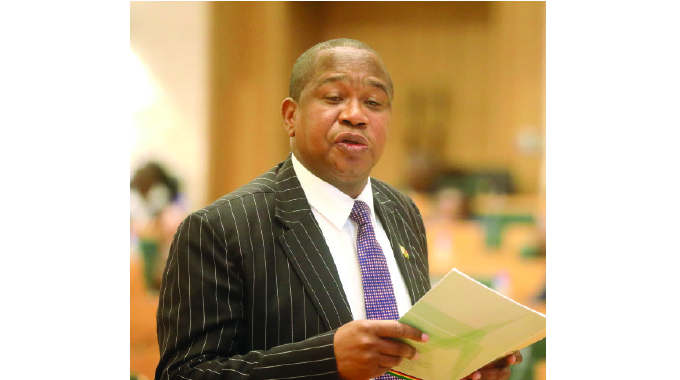IMTT reviewed downwards

Nqobile Bhebhe, Senior Business Reporter
Finance and Economic Development Minister, Professor Mthuli Ncube has proposed a downward review of the Intermediate Money Transfer Tax (IMTT) on domestic foreign currency transfers from four percent to two percent saying most entities are now preferring to settle transactions in cash instead of electronic transfers.
Captains of industry have been complaining of IMTT which they were saying was too high and therefore crippling business operations.
The objective of the IMTT was to bring the previously untaxed informal businesses under the tax bracket but formal businesses are saying its double taxation.
There was sustained lobbying for the Government to refine the tax and address some concerns raised by industry.
Presenting the 2023 National Budget yesterday, Prof Ncube said in order to promote usage of the local currency, the Government increased IMTT on domestic foreign currency transfers from two percent to four percent.
“It has, however, been observed that some entities are now preferring to settle transactions in cash instead of electronic transfers. In order to promote use of the banking system, I propose to align the IMTT on foreign currency transactions to local currency transactions at a rate of two percent. This measure takes effect from 1 January 2023,” he said.
The IMTT has tax-free thresholds in both local and foreign currency of $300 and US$5, respectively. Transactions of amounts exceeding $2,5 million and US$100 000 attract a flat rate of tax of $50 000 and US$2 000, respectively.
Professor Ncube said cumulative revenue collections for the period January to September 2022 amounted to ZW$1,2 trillion against a target of ZW$890,5 billion, giving a positive variance of ZW$269,9 billion.
Tax and non-tax revenue collections amounted to ZW$1,1 trillion and ZW$71,7 billion, respectively.
“Tax revenue benefitted from the positive performance on Value Added Tax (VAT), Personal Income Tax (PIT), Excise and Customs Duty and the Intermediated Money Transfer Tax (IMTT).
On revenue performance, Minister Ncube said public finances have generally been in line with the 2022 Revised Budget targets and revenue collections to September 2022, at ZW$1,16 trillion, against expenditures of ZW$1,19 trillion, resulting in a deficit of ZW$30,7 billion.
“Cumulative revenue collections for the period January to September 2022 amounted to ZW$1,2 trillion, against a target of ZW$890,5 billion, giving a positive variance of ZW$269,9 billion.
Revenue performance remains on course to meet the revised 2022 target of ZW$1,7 trillion, he noted.
Cumulative expenditures for the first nine months of 2022 stood at ZW$1,19 trillion, against a target of ZW$1.02 trillion, representing an expenditure overrun of ZW$173,9 billion.
Prof Ncube said the country’s total Public and Publicly Guaranteed (PPG) debt is estimated at ZW$2,2 trillion for domestic debt and US$14 billion for external debt (including blocked funds of US$3,1 billion) as at end September 2022.
Highlighting the macroeconomic fiscal framework, Minister Ncube said in line with the projected GDP growth rate of 3,8 percent, nominal GDP is estimated at ZW$21,8 trillion.

Prof Mthuli Ncube
Total revenue collections are projected at ZW$3,9 trillion (18 percent of GDP), comprising tax revenue of ZW$3,5 trillion (16 percent of GDP) and non-tax revenue of ZW$369,7 billion (1,7 percent) in 2023.”
The 2023 fiscal framework is anchored on a relatively stable macroeconomic environment, characterised by the convergence of the parallel and official exchange rates and continued inflation deceleration.
“The projected revenues will be complemented by both domestic and foreign resource mobilisation initiatives to the tune of ZW$575,5 billion, bringing the 2023 total Budget envelope to ZW$4,5 trillion.
“Consequently, total expenditure for the year 2023, are set at ZW$4,5 trillion, including loan repayments of ZW$248,6 billion.










Comments